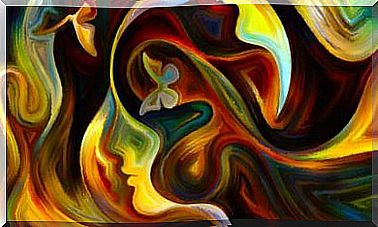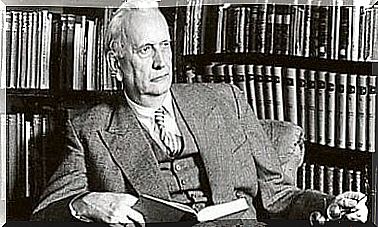The Five Types Of Mothers And Their Emotional Influence

Do you make a little mistake and feel like a complete failure? Do you feel a great emotional dependence on your partner? Or, on the contrary, do you avoid commitment at all costs? Do you have extreme difficulty making decisions? The aforementioned situations are experienced by many people on a daily basis. And, although it may seem surprising, they are the result of our childhood experiences and the different types of mothers with whom we grow up.
This is the conclusion reached by the American psychologist Stephan Poulter in his book The mother factor: How your mother’s emotional legacy impacts your life . The influence of the bond we establish with our mother is evident even in our adult life and is reflected in our strengths and weaknesses, in our self-esteem and in the way we relate to other people.
Thus, the five types of mothers described in this work have their own characteristics and transmit a different legacy to their descendants. Let’s see more below.
The five types of mothers
According to the author, there are five categories that include the vast majority of mothers. Although it is true that characteristics of several types generally coexist, one is usually the predominant one. They are as follows.

Perfectionist mother
These mothers are controlling and anxious, people for whom appearances are really important. Your goal is for your children and family to appear perfect in the eyes of the world.
These attitudes lead children to be hypercritical of themselves, to constantly feel inadequate and inadequate. They tend to have a great fear of criticism and rejection from others, but at the same time they tend to judge others. They can be very demanding people who do not allow themselves to make mistakes and do not tolerate frustration.
Unpredictable mother
These are women who apply a chaotic parenting style, based on the emotional state they are in each day. They don’t know how to handle their emotions and they let them affect the way they interact with their children.
For their part, they develop an ambivalent attachment and grow up in a constant state of alert that forces them to learn to read maternal emotional states in order to know what to expect.
This anxiety is replicated in the rest of their relationships, so they are fearful people and unable to trust that the affection of others will be stable. In addition, they tend to have exaggerated emotional reactions to seemingly trivial matters.
Mother best friend
They do not set limits, share confidences and even clothes with their children and behave as an equal. Instead of assuming their role as responsible adults, they leave their children without that authority figure and even burden them with the responsibility of being the adults and caregivers.
Children can grow up feeling abandoned or helpless and in their adult relationships they will experience a great fear of rejection and a tendency to feel unloved. Also, they are likely to get involved in unbalanced relationships where you have to assume the role of caregiver again.
Mother “me first”
Mothers who are self-centered, selfish and tend to give their children a secondary place. Children grow up feeling that their role is to fulfill their mother’s wants and needs and that her mother has the truth, so their opinions are invalid and unimportant. The lack of emotional support received leads them to doubt themselves and their own abilities.
Full mother
This could be considered the ideal mothering style, which only about 10% of children enjoy. They are balanced, loving women, but capable of guiding and setting limits.
Because the development of autonomy and individuality has been fostered, these children grow up with a good self-concept, feeling loved and confident. Therefore, they are able to take risks, adapt to change and establish healthy relationships.

All types of mothers encourage the development of strengths
The above view may be somewhat pessimistic as only a small percentage of people seem to be able to enjoy the benefits of proper parenting and secure attachment. However, it should be noted that all types of mothers, and the different educational contexts that they generate, contribute to creating strengths in their children.
For example, the children of perfectionist mothers are responsible and persevering at work, those of unpredictable mothers have a great empathic capacity and those raised with a mother best friend are decisive adults capable of taking initiative.
In sum, while we cannot modify the conditions of our childhood, we have the ability to extract valuable tools and lessons from those circumstances. We all have strengths and it is our decision to take advantage of them or remain anchored in what could have been.








